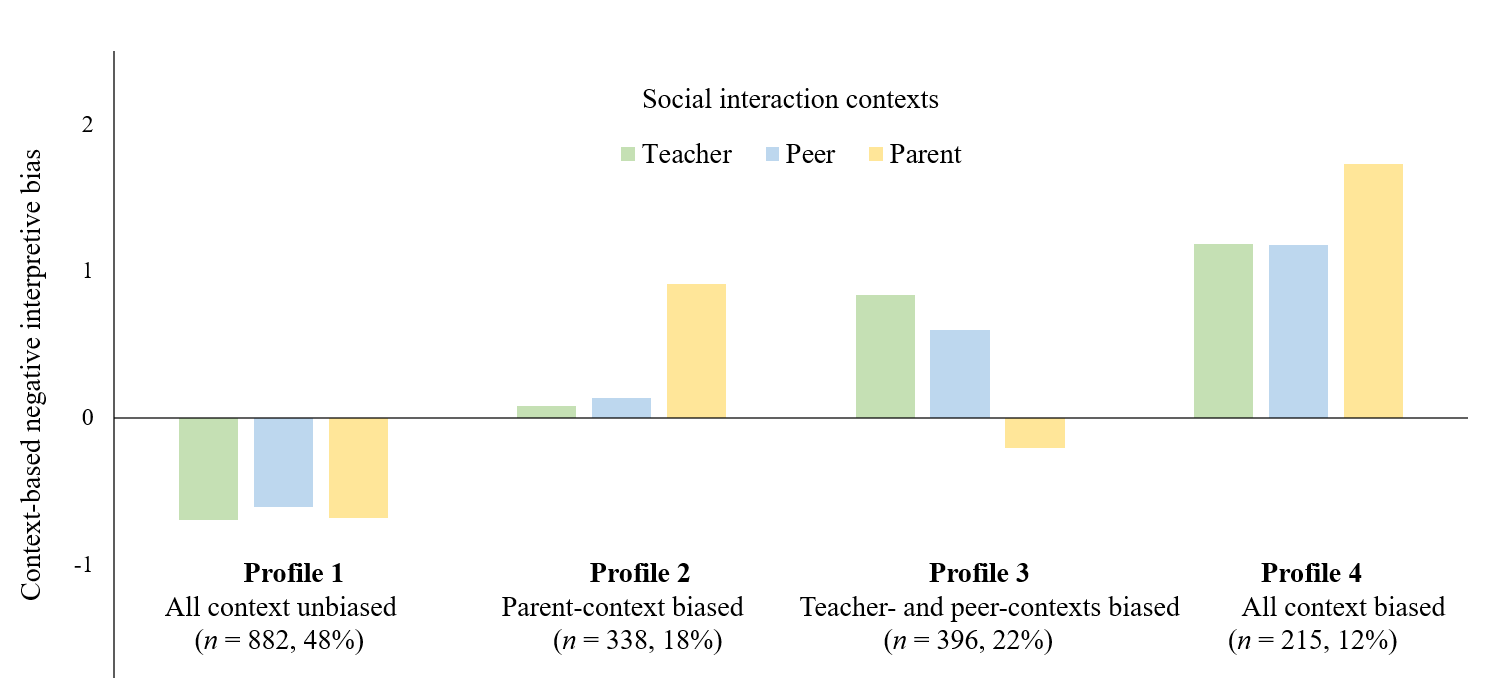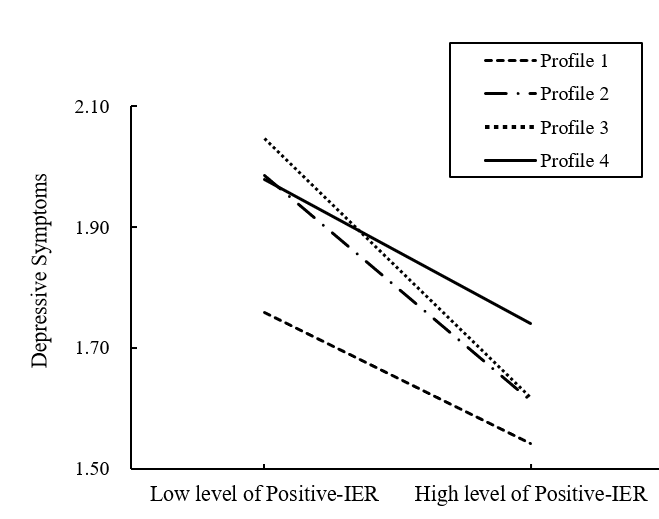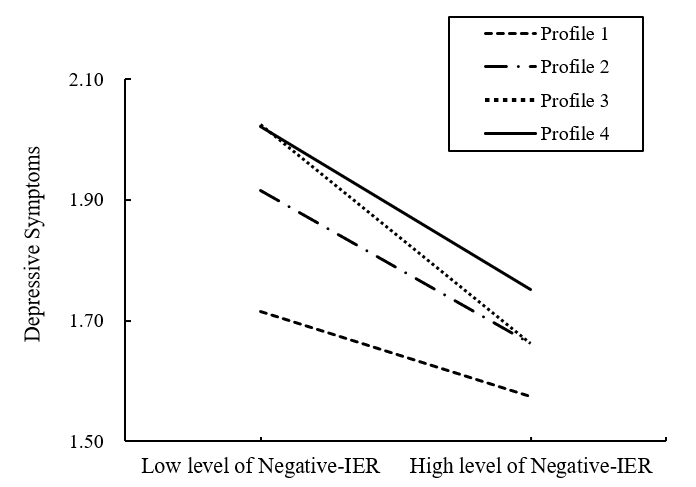青少年时期是抑郁高发的阶段,消极解释偏向可能是其重要的认知基础。青少年对不同情境的消极解释偏向有哪些模式?哪种模式的青少年抑郁症状的水平更高?北京大学心理与认知科学学院苏彦捷课题组的研究“Profiles of context-based negative interpretive bias and the association with depressive symptoms in adolescence: Exploring the role of interpersonal emotion regulation”发表于Personality and Individual Differences杂志(JCR-Q1;中科院二区TOP)。文章基于Social Baseline Theory与cognitive model of depression,探索了青少年在与父母、教师与同伴的社会互动情境中展现出了四种情境性消极解释偏向模式:“无情境偏向组”,“父母情境偏向组”,“教师同伴情境偏向组”以及“所有情境偏向组”。相比于“所有情境无偏见”组,其余各组青少年的抑郁症状水平显著更高,这表明抑郁症状对情境性消极解释偏向较为敏感,当青少年对某一情境的社会信息具有较高水平的消极解释偏向时,就会引发其较高水平的抑郁症状。

Fig. 1. Visual representation of the profiles based on the standardized scores on the context-based negative interpretive bias towards teacher, peer, parent-contexts.
此外,这一研究还揭示了人际情绪调节的重要作用。对于那些对部分社会互动情境具有较高水平消极解释偏向的青少年,如果能够通过人际互动的方式进行有效的情绪调节,其抑郁症状相较于同组个体处于较低水平。研究的结果对青少年抑郁的早期预测与干预研究提供了科学依据,基于社会互动中的认知偏向与情绪调节能够开发有效的青少年抑郁干预方案。


Fig. 2. The moderating effects of interpersonal emotion regulation.
Note: Negative-IER = Interpersonal negative emotion regulation; Positive-IER = Interpersonal positive emotion regulation. Profile 1 = “all contexts unbiased” group, profile 2 = “parent-context biased” group, profile 3 = “teacher- and peer-contexts biased” group, and profile 4 = “all contexts biased” group.
苏彦捷课题组的王依宁博士后为本文的第一作者,苏彦捷教授为本文的通讯作者。本研究得到了国家自然科学基金的支持。
Wang, Y., & Su, Y. (2024). Profiles of context-based negative interpretive bias and the association with depressive symptoms in adolescence: Exploring the role of interpersonal emotion regulation. Personality and Individual Differences, 231, 112841. https://doi.org/10.1016/j.paid.2024.112841
2024-11-26